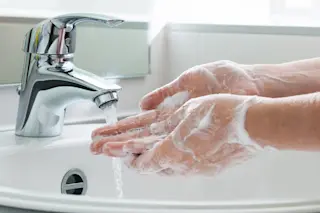(Credit: Alexander Raths/Shutterstock) It’s official; store shelves will be scrubbed clean of antibacterial hand and body soaps that contain certain ingredients. The U.S. Food and Drug Administration on Friday issued a final ruling that bans soaps that contain one, or a combination of, 19 specific ingredients — triclosan and triclocarbon are common — because there’s no scientific evidence that they prevent the spread of germs. In fact, these soaps might do more harm than good. In 2013, the FDA required manufacturers of these products to prove antibacterial soaps were safe and more effective than traditional soap. They couldn’t do it. On the other hand, a 2015 study published in the Journal of Antimicrobial Chemotherapy demonstrated that antibacterial soaps are no better at killing bacteria than old-fashioned soap. But the case for antibacterial soaps falls apart even more. There’s growing concern that overuse of triclosan, the biocide in hand soap, leads ...
FDA Washes the Dirt from Antibacterial Soaps
The FDA bans antibacterial hand and body soaps with triclosan due to lack of evidence for effectiveness over traditional soap.
More on Discover
Stay Curious
SubscribeTo The Magazine
Save up to 40% off the cover price when you subscribe to Discover magazine.
Subscribe













